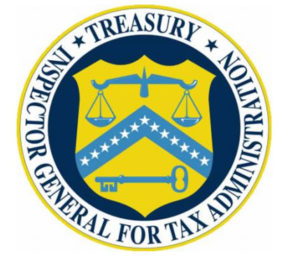IRS Fails To Properly Notify Taxpayers of Their Rights When Requested to Extend the Assessment Statute of Limitations
Saturday, August 17th, 2019 @ 5:05PM
CFEG researches and reports on abuses within the federal government with the goal of educating the public, the Congress and preventing and eliminating it through legislative and program initiatives.
In this article CFEG reports on findings set out in a report from the Treasury Inspector General for Tax Administration (TIGTA) dated August 7, 2019. https://www.treasury.gov/tigta/auditreports/2019reports/201930054fr.pdf The report is titled, Fiscal Year 2019 Statutory Audit of Compliance With Notifying Taxpayers of Their Rights When Requested to Extend the Assessment Statute, where TIGTA found that the IRS did not notify taxpayers of their rights when the assessment statutes are extended. https://www.treasury.gov/tigta/auditreports/2019reports/201930054fr.pdf
The IRS is required by law to notify taxpayers of their rights when requesting an extension of the statute of limitations for the assessment of additional taxes and penalties. https://www.treasury.gov/tigta/auditreports/2019reports/201930054fr.pdf
When the IRS audits a taxpayer’s tax return and determines that additional tax liability is due, the additional tax assessment must generally be processed within three years from the date the return was due or from the date on which the return was actually filed, whichever is later. https://www.treasury.gov/tigta/auditreports/2019reports/201930054fr.pdf The three-year assessment statute of limitations normally cannot be extended without written consent from the taxpayer.
To extend the statute of limitations, the IRS generally requests that a taxpayer provide the IRS with a signed consent form, such as Form 872, Consent to Extend the Time to Assess Tax; Form 872-B, Consent to Extend the Time to Assess Miscellaneous Excise Taxes; Form 872-P, Consent to Extend the Time to Assess Tax Attributable to Partnership Items; or Form SS-10, Consent to Extend the Time to Assess Employment Taxes. https://www.treasury.gov/tigta/auditreports/2019reports/201930054fr.pdf
Whenever an extension of the assessment statute of limitations is sought by the IRS it is typically extended for a period of time that both the IRS and the taxpayer agree is reasonable to complete the examination. https://www.treasury.gov/tigta/auditreports/2019reports/201930054fr.pdf
The consent can be negotiated by the taxpayer to apply only to certain audit issues. When Congress passed the IRS Restructuring and Reform Act of 1998 Congress wanted to ensure that taxpayers were fully aware of their rights to refuse or limit a request by the IRS to extend the statute of limitations. The IRS Restructuring and Reform Act of 1998, Section 3461(b)(2)(B) requires the IRS to “…notify the taxpayer of the taxpayer’s right to refuse to extend the period of limitations, or to limit such extension to particular issues or to a particular period of time, on each occasion when the taxpayer is requested to provide such consent.” https://www.treasury.gov/tigta/auditreports/2019reports/201930054fr.pdf This was done by Congress because taxpayers might believe they were required to agree to an extension simply because the IRS requested it.
TIGTA reported that there are times when a taxpayer may want to extend the assessment statute of limitations. For example, a taxpayer may want to pursue additional audit issues that are in the taxpayer’s favor in offsetting a proposed tax assessment or that might allow for a tax refund. https://www.treasury.gov/tigta/auditreports/2019reports/201930054fr.pdf
TIGTA reported that a taxpayer may want to limit or refuse to extend the assessment statute of limitations because the taxpayer may not want to provide the IRS with more time to consider additional audit issues or allow the IRS the opportunity to further develop audit issues already under consideration after the normal statute period has expired. https://www.treasury.gov/tigta/auditreports/2019reports/201930054fr.pdf
TIGTA reported that to implement the requirements of The IRS Restructuring and Reform Act of 1998, Section 3461(b)(2)(B), the IRS revised its procedures to require IRS employees to provide the taxpayer with Letter 907, Request to Extend Assessment Statute, or Letter 967, Letter Transmitting Consent Extending Period of Limitation. Included with these letters should be the actual consent forms to be signed as well as Publication 1035, Extending the Tax Assessment Period, which includes a more detailed explanation of the taxpayer’s rights and consequences of the taxpayer’s choices. https://www.treasury.gov/tigta/auditreports/2019reports/201930054fr.pdf
The consent forms also include a statement for the taxpayer’s representative to sign, confirming that they were notified of their rights regarding assessment statute extensions and that the taxpayers were made aware of the same rights. https://www.treasury.gov/tigta/auditreports/2019reports/201930054fr.pdf
TIGTA found in its report that IRS employees did not always follow IRS requirements to document that detailed letters further explaining the taxpayers’ rights to both the taxpayer and taxpayers’ representatives were sent. https://www.treasury.gov/tigta/auditreports/2019reports/201930054fr.pdf
TIGTA also noted in its report that IRS procedures and publications go beyond the statutory requirements by providing both the taxpayer and the taxpayer’s authorized representative with notices, including notification of the taxpayer’s rights. https://www.treasury.gov/tigta/auditreports/2019reports/201930054fr.pdf The IRS’s internal procedures require that notification be made to the taxpayer by sending Letter 907 or Letter 967, along with a properly completed consent form, which contains the notice of taxpayers’ rights and Publication 1035, each time a request is made to the taxpayer to consent to extend the period for assessment and IRS employees must also document in the case file on Form 9984, Examining Officer’s Activity Record, that the required notification was made. https://www.treasury.gov/tigta/auditreports/2019reports/201930054fr.pdf
TIGTA found that taxpayer audit files did not always contain documentation to support that the IRS complied with these procedures.
Based upon TIGTA’s sampling TIGTA projected there were 1,639 taxpayer audit files that did not contain documentation to show that the taxpayers were properly notified of their rights when the assessment statutes were extended. https://www.treasury.gov/tigta/auditreports/2019reports/201930054fr.pdf
In addition, TIGTA found there were 888 taxpayer audit files that did not contain documentation to support that the taxpayers’ representatives were provided with the required notifications. https://www.treasury.gov/tigta/auditreports/2019reports/201930054fr.pdf
TIGTA concluded in its report that taxpayers may be adversely affected if the IRS does not follow requirements to notify both the taxpayers and their representatives of the taxpayers’ rights related to assessment statute of limitations extensions. https://www.treasury.gov/tigta/auditreports/2019reports/201930054fr.pdf
In sum, this report of TIGTA demonstrates that there are many instances where the IRS does not follow their own internal rules and requirements as well as statutory requirements when it comes to notifying taxpayers of their rights when extending the assessment statute of limitations. The rules for notifying taxpayers of their rights is critical to the taxpayer because there may be adverse consequences should the taxpayer not be properly notified of their rights as pointed out by TIGTA.
Posted by cfegov
Categories: Examples of the IRS Failing to Notify Taxpayers of Their Rights, Fraud, Waste and Abuse, IRS ABUSE












